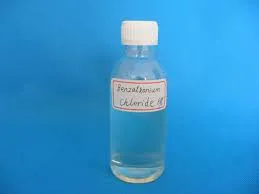Exploring the Applications and Properties of HEDP Acid in Various Industries
HEDP Acid Applications, Benefits, and Safety Considerations
HEDP acid, or Hydroxyethylidene Diphosphonic Acid, is a unique organic compound belonging to the family of phosphonates. Known for its excellent chelating and scale-inhibition properties, HEDP has gained significant attention in various industrial applications, particularly in water treatment, detergents, and as a corrosion inhibitor. This article will explore the multifaceted applications of HEDP acid, its benefits, and important safety considerations.
Applications of HEDP Acid
1. Water Treatment One of the primary uses of HEDP acid is in water treatment processes. It effectively chelates calcium, magnesium, and other metal ions, which helps prevent the formation of scales in boilers and cooling systems. By doing so, it enhances the efficiency and lifespan of these systems, reducing maintenance costs and downtime.
2. Corrosion Inhibition In industrial settings, metal corrosion can lead to significant financial losses and equipment failure. HEDP is widely used as a corrosion inhibitor in various formulations, protecting metals from oxidative damage. Its unique chemical structure allows it to form stable complexes with metal ions, thus reducing the rate of corrosion.
3. Detergents and Cleaning Agents HEDP is also incorporated into household and industrial detergents. It enhances the performance of cleaning products by softening water, thereby increasing the effectiveness of surfactants. This property is particularly beneficial in hard water areas, where calcium and magnesium interfere with detergent efficacy.
4. Agriculture In agricultural applications, HEDP has been explored for its ability to improve nutrient bioavailability in soil. By chelating essential nutrients, it facilitates their uptake by plants, promoting healthy growth and development.
hedp acid

Benefits of HEDP Acid
The benefits of HEDP acid are numerous, making it a popular choice across various industries
- High Stability HEDP acid is thermally and chemically stable, allowing it to perform effectively under a wide range of conditions. - Versatile Applications Its multifunctional properties make HEDP suitable for numerous applications, from water treatment to cleaning agents and agriculture. - Reduced Environmental Impact Compared to traditional phosphates, HEDP is considered more environmentally friendly. It allows for effective scale inhibition and corrosion control without contributing to eutrophication in water bodies.
Safety Considerations
While HEDP acid is generally recognized as safe when used appropriately, it is essential to consider safety measures during handling and application
1. Personal Protective Equipment (PPE) Individuals working with HEDP should wear appropriate PPE, including gloves and protective eyewear, to minimize skin and eye exposure. 2. Proper Storage HEDP should be stored in a cool, dry place in its original containers, away from direct sunlight and incompatible materials to ensure stability and safety. 3. Environmental Precautions Care should be taken to prevent HEDP from entering waterways, as even though it is less harmful than traditional phosphates, it can still have detrimental effects on aquatic life in significant concentrations.
In conclusion, HEDP acid is a valuable compound with diverse applications ranging from water treatment to corrosion inhibition and agricultural enhancement. Its ability to enhance industrial efficiency and reduce environmental impact positions it as a critical ingredient in various formulations. With appropriate safety measures, HEDP can continue to play a significant role in promoting sustainable practices across multiple sectors.
-
Water Treatment with Flocculant Water TreatmentNewsJun.12,2025
-
Polymaleic AnhydrideNewsJun.12,2025
-
Polyaspartic AcidNewsJun.12,2025
-
Enhance Industrial Processes with IsothiazolinonesNewsJun.12,2025
-
Enhance Industrial Processes with PBTCA SolutionsNewsJun.12,2025
-
Dodecyldimethylbenzylammonium Chloride SolutionsNewsJun.12,2025





